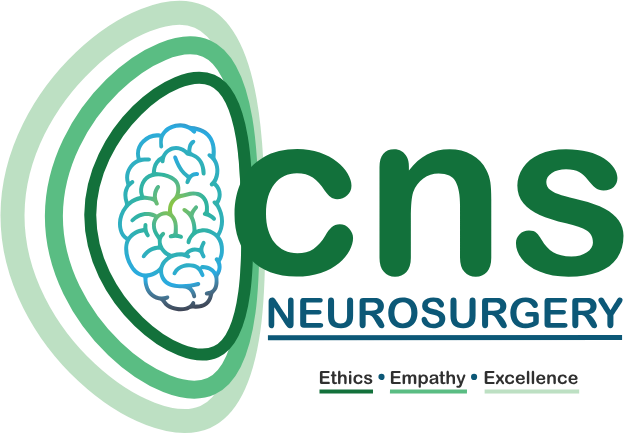Parkinson’s disease (PD) is a progressive neurodegenerative disorder that affects movement, causing symptoms such as tremors, stiffness, and balance issues. While there is no cure for Parkinson’s disease, various treatments can help manage its symptoms and improve the quality of life for those affected. One critical aspect of managing Parkinson’s disease that is often overlooked is diet and nutrition. A well-balanced diet can play a significant role in managing symptoms, improving overall health, and enhancing the effectiveness of medications.
1. Overview of Parkinson’s Disease
Parkinson’s disease is characterized by the loss of dopamine-producing neurons in the brain. Dopamine is a neurotransmitter that plays a vital role in controlling movement and coordination. As the disease progresses, dopamine levels decrease, leading to the characteristic motor symptoms of Parkinson’s.
Common symptoms of Parkinson’s disease include:
- Tremors or shaking
- Muscle rigidity
- Bradykinesia (slowness of movement)
- Postural instability
- Non-motor symptoms such as sleep disturbances, cognitive impairment, and gastrointestinal issues
While the exact cause of Parkinson’s disease is unknown, it is believed to result from a combination of genetic and environmental factors.
2. The Importance of Diet and Nutrition
Diet and nutrition are crucial components of overall health and can significantly impact the progression and management of Parkinson’s disease. A well-balanced diet can help manage symptoms, support overall health, and potentially slow disease progression. Key dietary goals for individuals with Parkinson’s disease include:
- Maintaining overall health and well-being
- Enhancing the effectiveness of medications
- Managing non-motor symptoms such as constipation and weight loss
- Supporting brain health and neuroprotection
3. Key Nutrients for Parkinson’s Disease Management
Several nutrients have been identified as particularly beneficial for individuals with Parkinson’s disease. Incorporating these nutrients into the diet can help manage symptoms and support overall health.
3.1. Antioxidants
Oxidative stress is believed to play a role in the progression of Parkinson’s disease. Antioxidants help combat oxidative stress by neutralizing free radicals. Foods rich in antioxidants include:
- Fruits and Vegetables: Berries, citrus fruits, leafy greens, and cruciferous vegetables
- Nuts and Seeds: Walnuts, almonds, sunflower seeds, and flaxseeds
- Beverages: Green tea and certain herbal teas
3.2. Omega-3 Fatty Acids
Omega-3 fatty acids have anti-inflammatory properties and may help protect neurons from damage. These healthy fats are found in:
- Fish: Salmon, mackerel, sardines, and trout
- Plant Sources: Flaxseeds, chia seeds, and walnuts
- Supplements: Fish oil or algae-based supplements
3.3. Fiber
Constipation is a common non-motor symptom of Parkinson’s disease. A diet high in fiber can help manage this symptom by promoting regular bowel movements. High-fiber foods include:
- Whole Grains: Oats, barley, brown rice, and whole wheat products
- Fruits: Apples, pears, berries, and prunes
- Vegetables: Broccoli, carrots, and legumes
3.4. Vitamin D and Calcium
Individuals with Parkinson’s disease are at an increased risk of bone density loss and fractures. Adequate intake of vitamin D and calcium is essential for bone health. Sources of these nutrients include:
- Vitamin D: Sun exposure, fortified foods (milk, orange juice), and supplements
- Calcium: Dairy products, leafy green vegetables, and fortified plant-based milks
3.5. B Vitamins
B vitamins, particularly B6, B12, and folate, are important for brain health and may help alleviate some symptoms of Parkinson’s disease. These vitamins are found in:
- Vitamin B6: Poultry, fish, potatoes, and bananas
- Vitamin B12: Meat, dairy products, and fortified cereals
- Folate: Leafy green vegetables, legumes, and citrus fruits
4. Dietary Considerations and Tips
In addition to focusing on specific nutrients, there are several dietary considerations and tips that can help manage Parkinson’s disease symptoms more effectively.
4.1. Timing of Meals and Medications
The timing of meals can impact the effectiveness of Parkinson’s medications, particularly levodopa. Protein-rich foods can interfere with the absorption of levodopa, reducing its effectiveness. To minimize this interaction, consider the following tips:
- Take Levodopa on an Empty Stomach: Take the medication 30 minutes before or 1-2 hours after meals.
- Distribute Protein Intake: Spread protein consumption evenly throughout the day instead of consuming large amounts in one meal.
4.2. Hydration
Adequate hydration is essential for overall health and can help manage constipation, a common issue in Parkinson’s disease. Aim to drink at least 8 cups (64 ounces) of water per day. Additionally, fluids such as herbal teas, soups, and water-rich fruits and vegetables can contribute to overall hydration.
4.3. Small, Frequent Meals
Eating smaller, more frequent meals can help manage symptoms such as nausea and low blood pressure, which are common in Parkinson’s disease. This approach can also help maintain energy levels throughout the day.
4.4. Mindful Eating
Mindful eating practices can enhance the overall eating experience and improve digestion. Tips for mindful eating include:
- Eat Slowly: Take your time to chew food thoroughly.
- Eliminate Distractions: Focus on the meal without distractions such as television or smartphones.
- Enjoy the Senses: Pay attention to the taste, texture, and aroma of the food.
5. Managing Non-Motor Symptoms with Diet
Non-motor symptoms of Parkinson’s disease, such as depression, cognitive impairment, and gastrointestinal issues, can significantly impact the quality of life. Diet and nutrition can play a role in managing these symptoms.
5.1. Depression and Anxiety
Certain nutrients can help support mental health and alleviate symptoms of depression and anxiety. These include:
- Omega-3 Fatty Acids: Found in fatty fish, flaxseeds, and walnuts.
- Folate: Found in leafy green vegetables, legumes, and fortified cereals.
- Vitamin D: Obtained through sun exposure, fortified foods, and supplements.
5.2. Cognitive Impairment
A diet rich in antioxidants, omega-3 fatty acids, and other brain-healthy nutrients can support cognitive function and potentially slow cognitive decline. Foods to include are:
- Fruits and Vegetables: Rich in antioxidants and phytochemicals.
- Nuts and Seeds: Provide healthy fats and vitamin E.
- Whole Grains: Offer a steady supply of energy to the brain.
5.3. Gastrointestinal Issues
Managing gastrointestinal issues such as constipation, gastroparesis (delayed stomach emptying), and swallowing difficulties is crucial for individuals with Parkinson’s disease. Dietary strategies include:
- High-Fiber Diet: Promotes regular bowel movements and prevents constipation.
- Adequate Hydration: Supports digestion and prevents constipation.
- Soft, Easy-to-Digest Foods: For individuals with swallowing difficulties, choose soft and easy-to-swallow foods such as pureed fruits, smoothies, and soups.
6. Supplements and Their Role
While a balanced diet should provide most of the necessary nutrients, supplements can be beneficial in certain cases. It is essential to consult with a healthcare provider before starting any supplements to ensure they are appropriate and safe. Common supplements for Parkinson’s disease management include:
- Coenzyme Q10 (CoQ10): An antioxidant that may support mitochondrial function and reduce oxidative stress.
- Vitamin D: Essential for bone health and may have neuroprotective effects.
- Omega-3 Fatty Acids: Support brain health and reduce inflammation.
- Probiotics: Promote gut health and may help manage gastrointestinal symptoms.
7. Challenges and Considerations
While diet and nutrition play a significant role in managing Parkinson’s disease, there are challenges and considerations to keep in mind.
7.1. Appetite Changes
Individuals with Parkinson’s disease may experience changes in appetite due to symptoms, medications, or psychological factors. Strategies to manage appetite changes include:
- Eating Small, Frequent Meals: Helps maintain energy levels and prevents overeating.
- Enhancing Food Appeal: Use herbs and spices to improve the flavor of meals.
- Nutrient-Dense Snacks: Choose nutrient-dense snacks such as nuts, seeds, and yogurt.
7.2. Swallowing Difficulties
Swallowing difficulties (dysphagia) are common in advanced Parkinson’s disease and can lead to malnutrition and dehydration. Tips for managing dysphagia include:
- Soft and Pureed Foods: Choose foods that are easy to swallow.
- Thickened Liquids: Use thickening agents to make liquids easier to swallow.
- Sitting Upright: Eat and drink while sitting upright to reduce the risk of choking.
7.3. Medication Interactions
Certain medications for Parkinson’s disease can interact with dietary components, affecting their absorption and efficacy. It is crucial to be aware of these interactions and plan meals accordingly. Consulting with a healthcare provider or a registered dietitian can help manage these interactions effectively.
8. Personalized Nutrition Plans
Every individual with Parkinson’s disease is unique, and dietary needs can vary widely. Personalized nutrition plans tailored to individual needs, preferences, and symptoms can be highly effective. Working with a registered dietitian who specializes in Parkinson’s disease can help create a customized plan that addresses specific challenges and goals.
9. Future Research and Developments
The role of diet and nutrition in Parkinson’s disease management is an active area of research. Ongoing studies are exploring the potential neuroprotective effects of various nutrients, the impact of gut health on Parkinson’s disease, and the benefits of dietary interventions. Staying informed about the latest research and developments can help individuals with Parkinson’s disease and their caregivers make informed decisions about their diet and nutrition.
Conclusion
Understanding the role of diet and nutrition in Parkinson’s disease management is essential for improving the quality of life and potentially slowing disease progression. A well-balanced diet rich in antioxidants, omega-3 fatty acids, fiber, and essential vitamins and minerals can help manage symptoms, support overall health, and enhance the effectiveness of medications. Personalized nutrition plans and professional guidance from healthcare providers and registered dietitians can provide invaluable support in navigating the dietary challenges associated with Parkinson’s disease. By prioritizing diet and nutrition, individuals with Parkinson’s disease can take proactive steps towards better health and well-being.
For more details about diet and nutrition in Parkinson’s Disease, contact Dr. Chirag Solanki, the best Parkinson’s disease doctor. Dr. Solanki provides expert guidance on managing Parkinson’s through tailored dietary plans to improve symptoms and overall well-being. Reach out to him for comprehensive support and personalized care.

